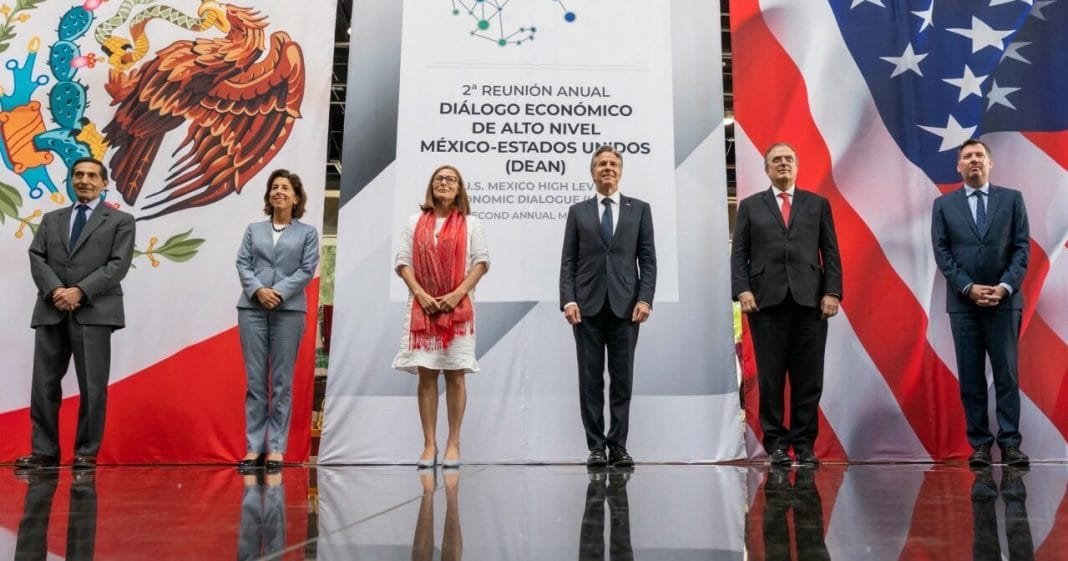Washington DC, 20 April 2023 (TDI): As part of the US-Mexico High-Level Economic Dialogue (HLED), co-chairs from both countries met virtually to review key accomplishments since September 2022 HLED ministerial and to discuss priority initiatives and stakeholder engagements to plan for the upcoming HLED ministerial in fall 2023.
The HLED seeks to foster economic development, job creation, competitiveness, and reduce poverty and inequality in both countries.
The dialogue has four thematic pillars that focus on building back together, promoting sustainable economic and social development, securing the tools for future prosperity, and investing in people.
The US delegation was led by Deputy United States Trade Representative Jayme White, Under Secretary of Commerce for International Trade Marisa Lago, and Under Secretary of State for Economic Growth, Energy, and the Environment Jose W. Fernandez.
The Mexican delegation was led by Under Secretary of Foreign Trade Alejandro Encinas, Under Secretary of Finance and Public Credit Gabriel Yorio, and Chief Officer for North America Roberto Velasco.
Also Read: US, Mexico discuss Security Cooperation
About mutual discussions
During the meeting, the co-chairs announced that the HLED implemented several stakeholder recommendations.
These include the creation of an Investor’s Single Window and the promotion of the National Institute of Standards and Technology (NIST) Cybersecurity Framework in Mexico.
Additionally, they increased cybersecurity capacity and coordination by promoting the adoption of international practices and consensus-based standards.
Likewise, ongoing projects include supply chain coordination in the semiconductor and ICT ecosystem and increased digitization of procedures at the border.
Notably, there is coordination on 5G development and ICT connectivity, strategic collaboration with universities, and enhanced workforce development.
In the same vein, the co-chairs discussed the US and Mexico’s cooperation on environmental technologies.
Also, they talked about coordination to promote the use of innovative environmental technologies addressing air quality, climate change mitigation, and water/wastewater challenges in the US-Mexico border region.
Thus, the HLED committed to implementing the recommendations of the Sandia study at the Matamoros-Brownsville Veterans International Bridge, which will serve as the first model port of entry.
The aim is to test joint planning, targeting, inspection, and communications that increase revenue and security screening.
Also Read: US Treasury emphasizes coordinated action
Moreover, the co-chairs agreed to continue working toward a pilot project. The project aims to determine the feasibility of near-shoring semiconductor manufacturing inputs.
This is to reduce the risk of future supply chain disruptions and support the integration of small and medium-sized enterprises (SMEs) into these supply chains.
Both countries are also considering engagement under two new proposals for the reuse of treated wastewater.
In a nutshell, the US and Mexico co-chairs highlighted progress in a variety of areas, including supply chain coordination, cybersecurity, environmental technologies, and border conditions.
To cut short, the HLED encourages an open, inclusive dialogue that values diverse perspectives and transparency while collaborating with civil society, the private sector, academia, labor, and other non-governmental organizations.
Ultimately, the upcoming HLED ministerial in fall 2023 will continue to advance strategic economic and commercial priorities for both countries, promoting job creation, enhancing competitiveness, and reducing poverty and inequality.






